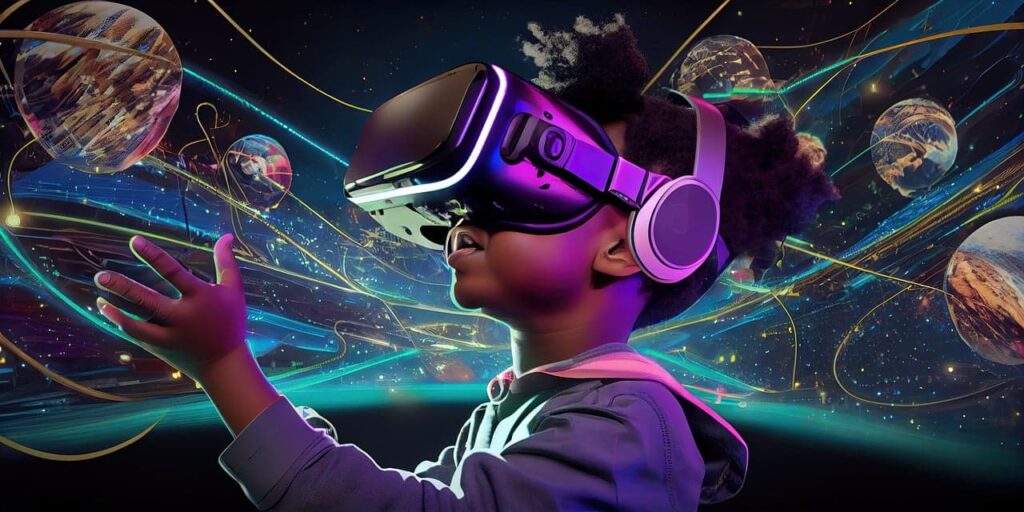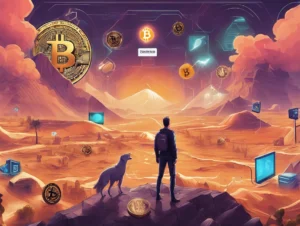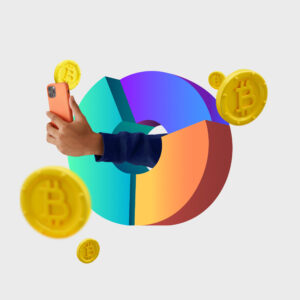The metaverse has become a major buzzword in tech circles, with industry giants like Meta (formerly Facebook), Microsoft, and Google investing billions of dollars into its development. But what exactly is the metaverse, and does it truly represent the future of the internet? In this article, we’ll explore the concept, its potential applications, and whether it’s set to revolutionize the digital world or is just another passing trend.
What Is the Metaverse?
The metaverse is essentially a collective virtual shared space that blurs the line between the digital and physical worlds. It combines elements of augmented reality (AR), virtual reality (VR), and 3D virtual environments, creating an immersive experience where users can interact with each other and digital objects in real-time.
Unlike traditional internet platforms, which are two-dimensional and rely on text and images, the metaverse offers a three-dimensional, immersive experience. In this virtual world, users can create avatars, attend virtual events, engage in commerce, and explore digital landscapes. Think of it as an internet you can step inside—where instead of scrolling through a webpage, you can walk through a virtual shopping mall, attend a live concert, or participate in a business meeting within a virtual office.
The Potential Applications of the Metaverse
The metaverse’s potential applications are vast, spanning entertainment, education, and business. Below are some key ways it is already making an impact:
1. Gaming and Entertainment
The gaming industry is leading the charge into the metaverse. Platforms like Roblox and Fortnite allow users to create and explore virtual worlds, interact with other players, and participate in events in shared digital spaces. These platforms have become so popular that major brands are now tapping into the metaverse to engage consumers in new, immersive ways. For example, Nike has launched virtual stores within Roblox where users can try on and purchase virtual shoes.
2. Education in a Virtual World
The metaverse has the potential to revolutionize education by creating immersive virtual classrooms that can replace traditional ones. Imagine learning about ancient civilizations by exploring a 3D recreation of ancient Rome or practicing medical procedures in a simulated virtual operating room. This level of immersion can make education more engaging, interactive, and accessible, allowing students to attend lessons from anywhere in the world.
3. The Future of Work and Virtual Offices
Businesses are also exploring how virtual offices and meetings within the metaverse can replace traditional, in-person gatherings. Employees could work remotely while collaborating with colleagues in a fully interactive virtual environment. Imagine a world where your morning commute is replaced by logging into a virtual office where you can have real-time interactions with your team, brainstorm in digital meeting rooms, and even participate in company events—all while working from the comfort of your home.

Challenges and Concerns in the Metaverse
While the metaverse holds immense potential, there are several challenges that need to be addressed before it becomes a mainstream reality:
1. Accessibility and Digital Divide
Currently, the hardware needed to access the metaverse—such as VR headsets and high-performance computers—can be expensive, creating a digital divide where only certain populations can fully participate. Ensuring the metaverse becomes widely accessible will be crucial for its success.
2. Privacy and Data Security
With users potentially spending hours immersed in virtual spaces, the amount of data collected by metaverse platforms could be staggering. Companies operating within the metaverse will have access to personal information on an unprecedented scale, raising serious concerns about data privacy and security. How this data will be collected, stored, and used will be critical issues to monitor.
3. Sustainability and Environmental Impact
The infrastructure required to run the metaverse—massive data centers, powerful servers, and high-speed internet—can have a significant environmental footprint. As the metaverse expands, companies must find ways to balance growth with sustainability to minimize the impact on the planet.
Is the Metaverse the Future of the Internet?
The metaverse has the potential to transform the way we live, work, and play. However, it’s important to remember that the technology is still in its early stages. While tech companies are pouring resources into developing the metaverse, whether it will become the next evolution of the internet or remain a niche space for gamers and tech enthusiasts remains to be seen.
Conclusion
The metaverse is a fascinating concept offering exciting possibilities for the future. It could reshape industries such as gaming, education, and business, creating new opportunities for digital interaction and engagement. However, for it to truly become the future of the internet, companies must address its challenges—accessibility, privacy, and sustainability—and the public must be willing to embrace this new, immersive way of interacting with the digital world living space.







